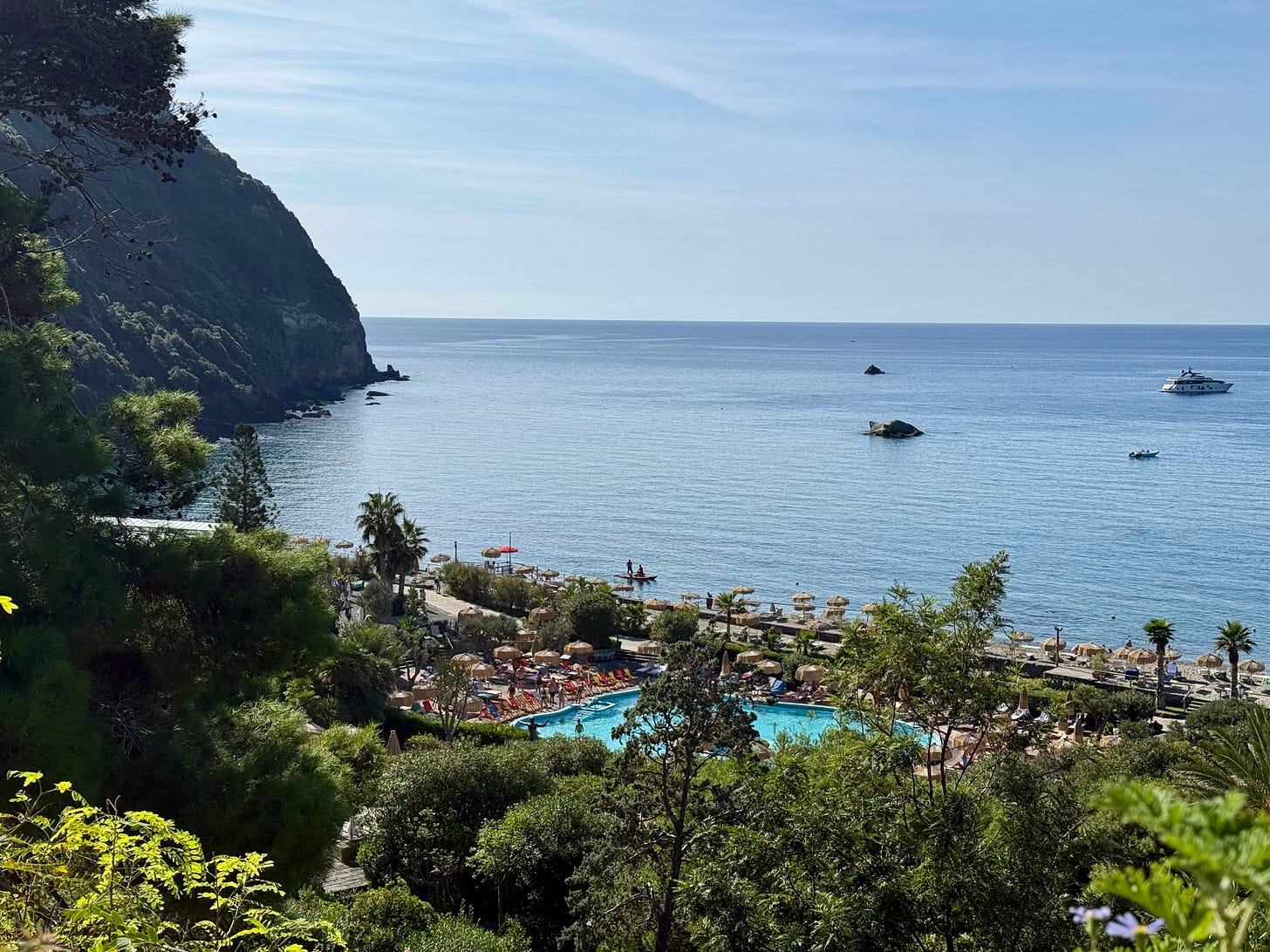Why You Should Never, Ever Trust an Italian Website
Plus the video replay from August's Ask Me Anything About Italy
Thanks to those who joined me live for August’s Ask Me Anything session. It’s always fun to chat, learn more about what you’re encountering as you plan your Italy trips, and answer your questions. There’s one big takeaway from this session that comes toward the end of the video in response to this question:
My daughter and I will be in Ischia. We would appreciate any tips on finding natural springs, other than Negombo (which closes just before we arrive) and Poseidon (which doesn’t look too appealing online, but we are open to your opinion about that as well).
Here’s the single most valuable thing I share about planning a trip to Italy: Never, ever, EVER trust an Italian website.
Some of the very best places I’ve ever visited have terrible websites. And many of the worst places I’ve visited have fantastic websites. I mean, it’s certainly helpful when a restaurant, hotel, or guide has a functioning website, but you should never make a value judgment about the experience from an Italian website.
This seems counterintuitive because in the U.S., a well-designed website and a listing on Google with updated hours indicate a professional operation. It’s a signal of trust and quality. But not in Italy. Even in the center of Rome or Florence, very well-known and reputable restaurants never bother to update their hours on Google and let the world know they are closed the entire month of August.
Italians are phone people. Passa parola people. (Word-of-mouth.) They are masters of design and hospitality, but not technology, and that’s just fine. Let them. Mom-and-pop businesses still rule in Italy, and I would much rather the owners of a restaurant obsess over the quality of zucchini flowers at the market than update their stupid website.
I know a restaurant that spent three years creating gorgeous branding that was printed on menus that belong in a museum, but never got around to building a functioning website.
I have two colleagues who offer boat tours, and each spent a lot of time and money creating websites that completely fell apart after a few months. Whoever was managing the backend moved to Barcelona, or a Russian hacker took over the website, and everyone gave the Italian shrug to the threatening emails demanding ransom in cryptocurrency. But their boats are always in top-notch condition, and the experiences they provide never disappoint.
I’ve argued with guides about putting up just a basic website so I could more easily reassure clients that the tour was worth their time and money, only to have them say, “Danielle, that’s your job,” and then offer me a coffee.
If you book a Trip Consultation with me and I offer a resource with just a WhatsApp phone number, you’re getting a chunk of GOLD.
If I tell you to visit a family-owned vineyard, but you’re uneasy about it because you searched online and found a one-star Yelp review left by an angry French woman, don’t then go and choose the corporate outfit with a sleek website that gives you false reassurance. You will be seriously missing out.
If you’re Italian and you’re ready to write an angry comment about this, tranquillo. I also know that many Italian businesses are making a concerted effort to change this, as they recognize the importance of a well-designed website in the global market. But, this isn’t criticism.
Long live small family-run businesses. Long live the human touch. Long live Italians prioritizing the lived experience over a digital one.
Paid subscribers, please find the video replay below. Mark your calendars for September 18th at 8:00 p.m. ET: our next live AMA on Zoom.
Keep reading with a 7-day free trial
Subscribe to Danielle Oteri's Italy to keep reading this post and get 7 days of free access to the full post archives.


